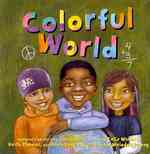Full Description
Winner 2024 Outstanding Recent Contribution in Social Psychology Award, Social Psychology Section, American Sociological Association
Winner 2024 Melvin Pollner Prize, Ethnomethodology and Conversation Analysis Section, American Sociological Association
As autism has grown in prevalence, so too have our attempts to make sense of it. From placing unfounded blame on vaccines to seeking a genetic cause, Americans have struggled to understand what autism is and where it comes from. Amidst these efforts, however, a key aspect of autism has been largely overlooked: the diagnostic process itself. That process is the central focus of Autistic Intelligence. The authors ask us to question the norms by which we measure autistic behavior, to probe how that behavior can be considered sensible rather than disordered, and to explore how we can better appreciate the individuality of those who receive the diagnosis.
Drawing on hundreds of hours of video recordings and ethnographic observations at a clinic where professionals evaluated children for autism, the authors' analysis of interactions among clinicians, parents, and children demystifies the categories, tools, and practices involved in the diagnostic process. Autistic Intelligence shows that autism is not a stable category; it is the outcome of complex interactional processes involving professionals, children, families, and facets of the social and clinical environments they inhabit. The authors suggest that diagnosis, in addition to carefully classifying children, also can highlight or include unique and particular contributions those with autism potentially can make to the world around us.
Contents
Chapter 1: Common Sense and the Interaction Order of the Clinic
Chapter 2: A Brief History and Biology of Autism Diagnosis: Why We Need an Interactional Approach
Chapter 3: An Interactional Entrance to Autism Diagnosis
Chapter 4: Autistic Intelligence as Uncommon Sense
Chapter 5: Varieties of Autistic Intelligence
Chapter 6: Doing Diagnosis: Narrative Structure
Chapter 7: Is Autism Real?
Chapter 8: Interaction and the Particular Autistic Person
Acknowledgments
Notes
References
Index








